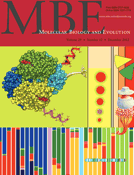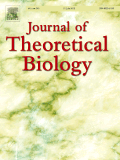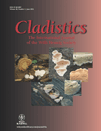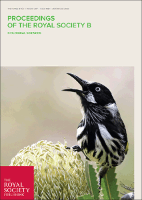
Theoretical Biology Forum
Scope & Guideline
Uniting Scholars for a Deeper Understanding of Biology
Introduction
Aims and Scopes
- Evolutionary Theory and Models:
The journal focuses on the development and critique of evolutionary theories, including discussions around the selfish gene theory, group selection, and the extended evolutionary synthesis. - Interdisciplinary Approaches:
It incorporates perspectives from various scientific disciplines, including ecology, genetics, and even archaeology, to enrich biological theories and their applications. - Communication and Semiosis in Biology:
A unique contribution of the journal is the emphasis on the role of communication and semiosis in evolutionary biology, highlighting the interactions between organisms and their environments. - Critique and Historical Context of Biological Theories:
The journal often revisits historical theories in biology, providing critiques and contextual analyses that help refine our understanding of biological concepts. - Methodological Innovations:
There is a consistent focus on innovative methodologies in biological research, including statistical models and computational techniques to analyze complex biological data.
Trending and Emerging
- Extended Synthesis in Evolutionary Biology:
There is an increasing focus on the extended synthesis of evolutionary biology, which incorporates new mechanisms of evolution, such as epigenetics and niche construction, challenging traditional views. - Interdisciplinary Integration:
A trend towards integrating concepts from various disciplines, including anthropology, linguistics, and ecology, to develop a more comprehensive understanding of biological phenomena. - Role of Communication in Evolution:
Emerging discussions around the role of communication, both in terms of genetic signaling and organismal interactions, highlight the complexity of evolutionary processes. - Philosophical and Ethical Implications of Biology:
There is a growing interest in the philosophical and ethical dimensions of biological research, particularly in relation to new technologies and their implications for society. - Complexity and Systems Biology:
An increased emphasis on complexity and systems biology reflects a trend towards understanding biological processes as interconnected systems rather than isolated events.
Declining or Waning
- Traditional Genetic Mechanisms:
There has been a noticeable decline in discussions centered solely on traditional genetic mechanisms of evolution, such as Mendelian inheritance, as newer, more integrative frameworks are gaining traction. - Reductionist Approaches:
Reductionist perspectives that focus exclusively on isolated biological phenomena are waning, as the journal increasingly favors holistic and integrative views of biological systems. - Classical Statistical Methods:
While statistical analysis remains important, there is a reduction in the emphasis on classical statistical methods in favor of more sophisticated, multidimensional approaches to data analysis.
Similar Journals

MOLECULAR BIOLOGY AND EVOLUTION
Unraveling Evolution through Molecular InsightsMOLECULAR BIOLOGY AND EVOLUTION, published by Oxford University Press, stands as a premier journal in the fields of molecular biology, evolutionary biology, and genetics. With a proud history dating back to its inception in 1983, the journal spans a convergence period through 2024, providing an exceptional platform for disseminating high-quality research. The journal is recognized in the top Q1 quartile across multiple categories, including Ecology, Evolution, Behavior and Systematics, and Genetics, reflecting its significant impact and relevance in these disciplines. With impressive Scopus rankings—10th in Ecology and Evolution, 12th in Genetics, and 22nd in Molecular Biology—it serves as a vital resource for scholars aiming to stay informed on cutting-edge developments in evolutionary processes and molecular genetics. While it currently does not offer open access, its curated contents resonate well with an audience of researchers, professionals, and students deeply interested in accelerating their understanding of the complexities of life through an evolutionary lens.

BIOLOGICAL JOURNAL OF THE LINNEAN SOCIETY
Fostering collaboration for a sustainable future.BIOLOGICAL JOURNAL OF THE LINNEAN SOCIETY is a prestigious, peer-reviewed journal published by Oxford University Press that serves as a leading platform for original research in the fields of ecology, evolution, behavior, and systematics. With its ISSN of 0024-4066 and E-ISSN 1095-8312, this journal has maintained an impressive Q1 ranking in the latest Scopus statistics, which firmly positions it among the top tier of journals in its category (ranked #197 out of 721). Established in 1969, it covers a broad range of topics crucial for understanding biodiversity and the evolutionary processes shaping it, with its coverage extended until 2024. Though it does not operate under an open-access model, it ensures wide visibility and dissemination of impactful research findings. The journal is key for researchers, professionals, and students dedicated to advancing knowledge in biological sciences, fostering interdisciplinary collaboration, and addressing pressing ecological challenges.

BIOSYSTEMS
Fostering collaboration across disciplines to tackle biological challenges.BIOSYSTEMS is a prestigious academic journal published by Elsevier Science Ltd, dedicated to the interdisciplinary fields of applied mathematics, biochemistry, genetics, molecular biology, medicine, modeling and simulation, and statistics and probability. Established in 1967, this journal has carved a niche in presenting innovative research that bridges theoretical and practical aspects of biological systems, making it essential reading for researchers, professionals, and students alike. With a robust impact factor and a Q3 category ranking across various fields, BIOSYSTEMS is recognized for its contributions to advancing scientific knowledge and fostering collaborations among disciplines. The journal's rigorous peer-review process ensures high-quality and impactful articles that address complex biological challenges through quantitative and qualitative methods. As a vital resource for the academic community, BIOSYSTEMS invites submissions that enhance understanding of biosystem processes, enabling readers to stay at the forefront of research trends and applications.

BULLETIN OF MATHEMATICAL BIOLOGY
Advancing the Intersection of Mathematics and BiologyBulletin of Mathematical Biology, published by Springer, is a premier journal dedicated to advancing the field of mathematical biology. With an ISSN of 0092-8240 and an E-ISSN of 1522-9602, this journal has been at the forefront of interdisciplinary research since its inception in 1973, continuing to deliver high-quality contributions through 2024. Operating without an open-access model, the journal maintains robust academic rigor, reflected in its category quartiles for 2023, which positions it in Q1 and Q2 across several relevant fields, including Agricultural and Biological Sciences, Biochemistry, Genetics, and Mathematics, among others. Its impressive Scopus ranks further underscore its significance, placing it in the top tier of journals in general mathematics and agricultural sciences. Researchers, professionals, and students looking to deepen their understanding and contribute to the evolving landscape of mathematical biology will find this journal an essential resource for contemporary studies and advancements in the field.

Biolinguistics
Pioneering the Dialogue Between Language and LifeBiolinguistics, published by the University of Cyprus, Department of English Studies, is a distinguished Open Access journal that has been at the forefront of exploring the intricate relationships between biology and language since its inception in 2007. With an ISSN of 1450-3417 and an impressive presence in both Experimental and Cognitive Psychology and Linguistics, this journal ranks in the Q4 and Q3 Quartiles respectively, indicating its significant contribution to these fields. Situated in Nicosia, Cyprus, the journal aims to bridge interdisciplinary gaps, drawing insights from cognitive science, linguistics, and biological studies, making it essential reading for researchers, professionals, and students. With current Scopus rankings placing it in the 77th percentile for Language and Linguistics and a 20th percentile in Experimental and Cognitive Psychology, Biolinguistics continues to make an impactful mark on the academic community. As you delve into its enriching content, you can expect rigorous peer-reviewed articles that pave the way for innovative research and discourse within the realm of biolinguistics.

JOURNAL OF THEORETICAL BIOLOGY
Pioneering Theoretical Approaches to Modern BiologyJOURNAL OF THEORETICAL BIOLOGY, published by Academic Press Ltd - Elsevier Science Ltd, stands as a pivotal source of scholarly research in the domains of theoretical and applied biological sciences. Since its inception in 1961, this esteemed journal has contributed significantly to the advancement of knowledge across various fields, including agricultural sciences, applied mathematics, biochemistry, genetics, immunology, and medical research. With a commendable Q2 ranking in multiple categories for 2023, it showcases robust impact throughout the academic community, reflected in its high Scopus rankings, which place it in the top 25% of journals in several categories. The journal's commitment to fostering interdisciplinary research supports its objective of bridging theoretical frameworks with practical applications, making it an essential resource for researchers, professionals, and students alike. With its wide-ranging topics and a keen focus on innovation, the JOURNAL OF THEORETICAL BIOLOGY is indispensable for those seeking to explore the complexities of biological systems and their mathematical modeling.

JOURNAL OF EVOLUTIONARY BIOCHEMISTRY AND PHYSIOLOGY
Decoding the Evolutionary Threads of Biochemical ProcessesJOURNAL OF EVOLUTIONARY BIOCHEMISTRY AND PHYSIOLOGY, published by PLEIADES PUBLISHING INC, is a pivotal periodical that delves into the intricate relationships between biochemical processes and evolutionary dynamics. With its ISSN 0022-0930 and E-ISSN 1608-3202, this journal serves as a comprehensive platform for researchers, professionals, and students dedicated to understanding the physiological adaptations and biochemical mechanisms influenced by evolutionary pressures. Although it is not an open access journal, it offers valuable insights across its historically significant coverage spanning from 1972 to 2017, making it an essential resource for those working in agricultural, biological, and molecular sciences. Despite its current Scopus rankings revealing limited visibility within its fields, the journal remains committed to fostering scholarly dialogue and advancing knowledge in the realm of evolutionary biochemistry, especially for those exploring the ecological, genetic, and integrative physiological aspects of life.

CLADISTICS
Elevating Research in Clade-Based Phylogenetic StudiesCLADISTICS is a premier academic journal published by WILEY, dedicated to advancing the fields of ecology, evolution, behavior, and systematics since its inception in 1985. Renowned for its rigorous peer-review process and commitment to high-quality research, the journal is listed in the top quartile (Q1) of its category as of 2023, ranking 50th out of 721 journals in the Scopus database, placing it in the 93rd percentile. This significant standing underscores its critical role in the dissemination of pioneering research and methodologies that are shaping modern evolutionary biology. With a focus on clade-based phylogenetic studies and their applications, *CLADISTICS* serves as a vital resource for researchers, professionals, and students alike, fostering a deeper understanding of biodiversity and evolutionary processes. Although it does not offer open access, the journal is committed to providing comprehensive, state-of-the-art content that continues to influence the scientific community and guide future research directions.

PROCEEDINGS OF THE ROYAL SOCIETY B-BIOLOGICAL SCIENCES
Fostering Evidence-Based Biological DiscoveriesPROCEEDINGS OF THE ROYAL SOCIETY B-BIOLOGICAL SCIENCES, published by the esteemed Royal Society, stands as a premier platform for disseminating cutting-edge research in the fields of Biological Sciences. With an impressive impact factor reflective of its high citation rates and scholarly contributions, this journal encompasses a wide array of disciplines, including Agricultural and Biological Sciences, Biochemistry, Genetics and Molecular Biology, Environmental Science, and Immunology and Microbiology, consistently ranking in the Q1 category across these fields. Since its inception in 1946, it has been committed to advancing our understanding of biological systems and informing evidence-based practices. Researchers and academics can submit their work without the Open Access barrier, thereby maintaining the integrity of the disciplinary discourse while providing comprehensive insights. The journal's location in the United Kingdom also positions it at the heart of global scientific innovation, making it a vital resource for professionals and students alike who are eager to explore the latest trends and breakthroughs in the biological sciences.

BIOLOGY & PHILOSOPHY
Cultivating a Dialogue between Science and PhilosophyBIOLOGY & PHILOSOPHY, published by SPRINGER, is a leading journal that explores the intricate and dynamic interplay between biology and philosophy. With an impressive impact factor in the Q1 category across multiple disciplines including Agricultural and Biological Sciences, History and Philosophy of Science, and Philosophy, this journal has firmly established itself as an essential resource for researchers, professionals, and students alike. Since its inception in 1986 and continuing through 2024, BIOLOGY & PHILOSOPHY fosters critical inquiry and discussion, inviting contributions that advance the understanding of biological sciences from philosophical perspectives. Although it operates under a traditional subscription model without Open Access options, its high Scopus rankings—#38 in Philosophy and #14 in History and Philosophy of Science—underscore its significance and influence in contemporary research. For those keen on delving deeper into the ethical, epistemological, and conceptual challenges posed by biological research, this journal serves as a compelling platform for groundbreaking scholarship.